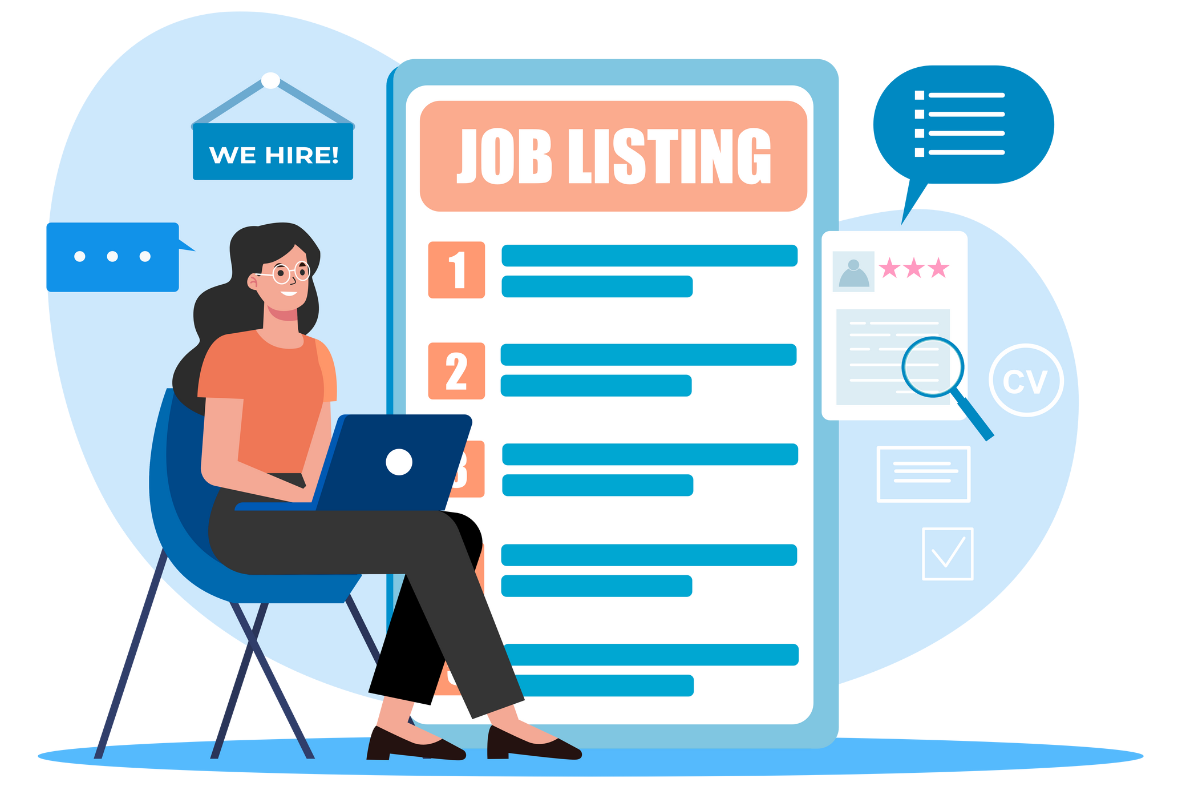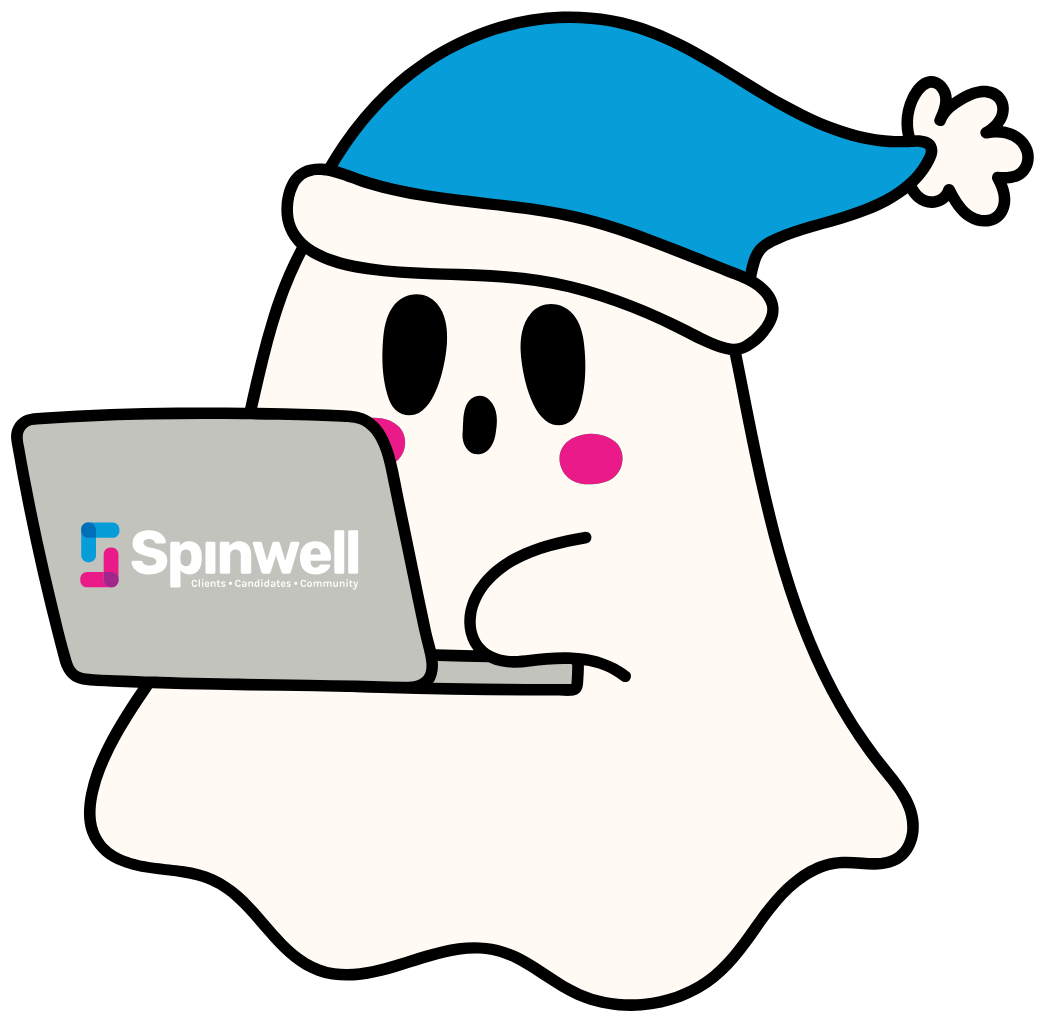Spinwell Global
Interesting Jobs for Interesting People
Salary Negotiation 101: How to Ask Without Undermining Yourself

Talking about money can feel uncomfortable—but when it comes to your career, learning how to negotiate your salary with confidence is one of the most valuable skills you can develop. Whether you’re discussing pay for a new role or seeking a raise in your current position, knowing how to approach the conversation professionally can make all the difference.
Here’s how to navigate salary negotiations without selling yourself short.
1. Do Your Research
Knowledge is power. Before entering any negotiation, research the average salary range for your role, industry, and location using reliable sources like Glassdoor, Payscale, or LinkedIn Salary Insights. This ensures you’re basing your request on data, not guesswork—and helps you confidently justify your expectations.
2. Know Your Value
Reflect on your skills, experience, and accomplishments. What unique value do you bring to the company? Highlight measurable achievements—such as projects completed, revenue generated, or efficiencies introduced—that demonstrate your impact. Framing your worth in terms of results makes your case far more compelling.
3. Time It Right
If you’re already in a role, bring up salary discussions during performance reviews or after a major success, not in the middle of a busy project or company downturn. For new job offers, wait until you’ve received the offer before discussing salary—this keeps the focus on your suitability first.
4. Be Clear and Professional
When you’re ready to ask, be direct yet courteous. For example:
“Based on my experience and market research, I was hoping for a salary in the range of €X to €Y. Is there flexibility in the offer?”
Avoid apologising or sounding uncertain—phrases like “I’m sorry to ask” or “I know it’s probably too much” can unintentionally undermine your confidence.
5. Think Beyond the Paycheck
Remember, compensation isn’t just about base salary. Consider negotiating other benefits like remote work options, extra holidays, professional development funding, or performance bonuses. Sometimes these perks can add significant long-term value.
6. Be Ready to Compromise
Negotiation is a two-way street. Be open to discussion and maintain a positive, collaborative tone. Even if the employer can’t meet your full request, they’ll remember your professionalism—which could open doors to future raises or promotions.
Final Thoughts
Salary negotiation isn’t about being pushy—it’s about recognising your worth and communicating it effectively. By preparing well, staying confident, and focusing on mutual value, you can secure fair compensation without damaging relationships or your credibility.
Remember: you’re not just asking for more money—you’re advocating for the value you bring. And that’s something every professional should feel empowered to do.
Get in touch with us
NK
Is Hybrid Working Fading Away?

When the pandemic reshaped the way we worked, hybrid working—splitting time between home and the office—was hailed as the future of work. It offered the perfect balance: flexibility for employees and face-to-face collaboration for employers. But in recent months, there’s been a noticeable shift. More organisations are moving back toward office-first models, leaving many to wonder: is hybrid working starting to fade?
Why Companies Are Pulling Back
-
Collaboration & Culture
Leaders argue that being in the office strengthens culture, sparks creativity, and fosters better collaboration. Some fear that too much time apart weakens team cohesion. -
Productivity Concerns
While many employees thrive remotely, some employers believe productivity dips without consistent in-office presence—particularly for new hires who benefit from hands-on mentoring. -
Economic Pressures
With businesses under pressure to maximise efficiency, some see office attendance as a way to ensure accountability and quicker decision-making. -
Real Estate Investments
Large office spaces come at a cost. Many organisations are reluctant to let expensive real estate sit half-empty, leading to stricter return-to-office policies.
What This Means for Employees
For workers, the shift can feel like a step backward. Many value the flexibility hybrid working offers—saving time on commutes, achieving better work-life balance, and enjoying autonomy. As companies tighten policies, employees may begin factoring flexibility into their career choices, making it a potential differentiator in recruitment and retention.
The Future of Hybrid
Hybrid isn’t disappearing entirely, but it’s evolving. The balance between flexibility and in-person work will likely continue to shift depending on industry, company culture, and employee expectations. Those businesses that can strike the right balance—offering flexibility while maintaining collaboration—will have the edge in attracting and keeping top talent.
Get in touch with us
NK
How Company Culture Impacts Recruitment and Retention

When it comes to attracting and keeping top talent, salary and benefits are no longer the only deciding factors. Today’s professionals place just as much importance on company culture — the values, behaviors, and environment that shape everyday working life.
Why Culture Matters in Recruitment
A strong company culture acts like a magnet. Job seekers are increasingly researching potential employers online, reading reviews, and asking about culture during interviews. A positive, transparent, and inclusive culture can set you apart in a competitive talent market, while a poor reputation can turn candidates away before they even apply.
The Role of Culture in Retention
Hiring great people is only half the battle — keeping them is where culture really counts. Employees who feel aligned with their company’s values and enjoy the work environment are more engaged, motivated, and loyal. On the other hand, a mismatch in culture often leads to dissatisfaction, disengagement, and higher turnover rates.
Building a Culture That Works
To strengthen both recruitment and retention, companies should:
-
Define and communicate values clearly – make sure employees understand and live them.
-
Foster inclusivity and belonging – create a workplace where everyone feels respected.
-
Encourage growth and development – provide opportunities for learning and career progression.
-
Promote transparency and trust – keep communication open and authentic at all levels.
Final Thoughts
Company culture isn’t just a “nice-to-have” — it’s a critical driver of recruitment success and long-term employee retention. When culture and people are in harmony, organizations thrive, employees stay longer, and candidates are eager to join.
Get in touch with us
NK
The Future of Work: Jobs That Will Be in High Demand by 2030

The workplace is changing at lightning speed. Technology, demographics, and shifting global priorities are reshaping not only how we work, but the types of jobs that will exist in the next decade. For professionals planning their career paths — and businesses preparing their workforces — understanding which roles will be in demand by 2030 is key.
So, what careers are set to dominate the future of work? Let’s take a closer look.
1. Technology & Data Specialists
As digital transformation accelerates, the need for tech expertise will only grow. Roles like AI specialists, cybersecurity analysts, data scientists, and cloud engineers are already highly sought after — and by 2030, demand is expected to skyrocket. Organisations will need people who can not only manage advanced systems but also ensure data is secure, ethical, and used responsibly.
2. Healthcare & Wellness Professionals
An ageing population and increased focus on wellbeing mean healthcare will remain one of the fastest-growing sectors. Beyond doctors and nurses, we’ll see rising demand for mental health professionals, telemedicine providers, elderly care specialists, and public health advisors. The pandemic highlighted how critical this sector is — and that focus will only deepen by 2030.
3. Green Jobs & Sustainability Experts
Climate change is reshaping industries across the globe. Careers in renewable energy, sustainability consulting, environmental engineering, and green construction will be crucial as governments and businesses commit to net-zero targets. Expect significant growth in roles that help organisations transition to more sustainable, eco-friendly operations.
4. Human-Centric Roles
While automation and AI will replace some tasks, jobs that require creativity, emotional intelligence, and human connection will thrive. HR professionals, learning and development managers, diversity and inclusion specialists, and leadership coaches will all play key roles in shaping the future workplace.
5. Education & Skills Trainers
As the job market evolves, so does the need for reskilling. Trainers, educators, and digital learning specialists will be in demand to help workers adapt to new technologies and career paths. Lifelong learning will no longer be optional — it will be essential.
6. Creative & Digital Media Careers
The creator economy is booming, and by 2030, businesses will rely even more on skilled digital marketers, content creators, UX designers, and virtual reality developers. Creativity, storytelling, and the ability to engage audiences online will continue to set candidates apart.
Preparing for 2030
The jobs of the future highlight a clear trend: adaptability is key. Professionals who combine technical skills with creativity, critical thinking, and emotional intelligence will have the edge.
For job seekers, this means investing in continuous learning and staying ahead of industry trends. For employers, it’s about building workforces that are not only technically skilled but also resilient and future-ready.
The future of work isn’t something to fear — it’s an opportunity. By 2030, we’ll see a job market that rewards innovation, empathy, and adaptability. Those who embrace these shifts today will be best positioned for success tomorrow.
Get in touch with us
NK
How to Stand Out in a Competitive Job Market

In today’s fast-paced and competitive job market, landing the right opportunity takes more than just submitting applications and hoping for the best. With hundreds of candidates often vying for the same role, standing out requires a combination of self-awareness, strategy, and visibility. The good news? With the right approach, you can position yourself as a top candidate who recruiters and hiring managers remember.
Here are some practical strategies to help you shine in a crowded job market:
1. Build a Strong Personal Brand
Your personal brand is what sets you apart from the competition. It’s the story of who you are, what you stand for, and the value you bring. Start by identifying your strengths, passions, and career goals, then craft a consistent message across your CV, cover letter, and online profiles. Think of it as your professional reputation — one that should feel authentic and aligned with your aspirations.
Pro tip: Develop a short “elevator pitch” that summarises your expertise and unique qualities. This will come in handy during networking events, interviews, or even casual conversations.
2. Optimize Your LinkedIn Profile
LinkedIn is one of the most powerful tools for job seekers, but many people only scratch the surface of its potential. Ensure your profile is complete, professional, and searchable.
-
Use a high-quality headshot.
-
Write a compelling headline that goes beyond your job title.
-
Showcase achievements in your “About” section and experience entries.
-
Add relevant skills and ask for endorsements.
-
Share posts or articles to position yourself as a voice in your industry.
Recruiters spend hours every day searching LinkedIn for candidates — make sure you’re discoverable.
3. Be Strategic with Applications
Instead of applying to every job you see, focus on quality over quantity. Tailor your CV and cover letter to each role, highlighting the most relevant skills and achievements. Show the employer how you can solve their problems, not just what tasks you’ve done before.
Tracking your applications in a spreadsheet can also help you stay organised and follow up at the right times.
4. Network with Intention
Remember the hidden job market: many opportunities never get advertised publicly. Build and nurture your network by attending events, engaging in online communities, and reaching out to former colleagues. Don’t just ask for jobs — aim to create meaningful connections that can lead to opportunities over time.
5. Keep Growing Your Skills
Upskilling is one of the best ways to stay competitive. Whether it’s taking an online course, earning a certification, or learning a new software tool, showing that you’re committed to continuous learning makes you a stronger candidate.
Final Thoughts
Standing out in a competitive job market is about more than luck — it’s about being intentional with how you present yourself, how you connect with others, and how you pursue opportunities. By investing in your personal brand, optimising LinkedIn, applying strategically, and continually developing your skills, you’ll not only get noticed but also increase your chances of landing the role that’s right for you.
Get in touch with us
NK
How to Prep for a Virtual Interview Like a Pro

Virtual interviews have become a standard part of the hiring process, offering convenience for both candidates and employers. But while you don’t have to travel or worry about parking, virtual interviews come with their own unique challenges. From tech hiccups to awkward silences, preparation is key to ensuring you make the right impression. Here’s how to get ready like a pro.
- Do Your Tech Checks Early
Nothing derails an interview faster than technical issues. Test your setup at least a day in advance. Make sure your internet connection is stable, your microphone works clearly, and your camera produces a crisp image. Download any required software (Zoom, Teams, Google Meet, etc.) and ensure you know how to join the meeting. On the day of the interview, log in 5–10 minutes early to avoid last-minute stress.
Pro tip: Always have a backup plan, such as a phone hotspot or a second device, just in case.
- Create a Professional Background
Your background says a lot about you. Choose a clean, uncluttered space with good lighting. Natural light works best, but if that’s not possible, position a lamp in front of you (not behind) to avoid shadows. Avoid distracting backdrops like messy shelves or noisy environments. If you’re limited on options, a simple virtual background or blurred background feature can work too.
Pro tip: Neutral tones and tidy spaces keep the focus on you—not what’s behind you.
- Dress for the Role
Even though you’re at home, treat a virtual interview like an in-person one. Dress professionally from head to toe—it not only looks better on camera but also puts you in the right mindset. Avoid overly bright patterns that might be distracting on screen.
- Mind Your Body Language
Non-verbal cues carry weight, even over video. Sit up straight, make “eye contact” by looking into the camera (not at yourself), and nod occasionally to show engagement. Smile naturally and avoid fidgeting. Keep your hands visible and use small gestures when speaking—it makes you appear confident and approachable.
- Prepare Your Space for Silence
Background noise can be distracting, so silence your phone, turn off notifications, and let housemates or family know you’ll need quiet. Headphones with a built-in mic can also improve sound quality and reduce echoes.
- Practice, Practice, Practice
Do a mock virtual interview with a friend or record yourself answering common questions. Pay attention to how you come across on camera—tone of voice, pacing, and clarity matter more online since subtle cues can get lost over video.
Final Thoughts
A virtual interview is still an interview—it requires the same preparation and professionalism as meeting in person, with a few added tech considerations. By checking your setup, creating a polished environment, and being mindful of your body language, you’ll project confidence and capability.
Remember: the goal is to make the technology fade into the background so the spotlight stays on you and your skills. With the right prep, you’ll come across as professional, composed, and ready to take on the role.
Get in touch with us
NK
Job Hunting While Employed: How to Stay Discreet but Strategic

Looking for a new role while you’re still employed can feel like walking a tightrope. On one hand, you want to explore new opportunities that align better with your career goals. On the other, you need to remain professional and respectful to your current employer. The key? Balancing discretion with a smart, strategic approach.
Be Mindful of Timing
Use your free time wisely. Avoid job searching during work hours or using company resources to apply for roles. Instead, carve out time in the evenings or weekends to update your CV, send applications, or schedule interviews. This ensures you stay focused on your current responsibilities while still making progress toward your next step.
Keep It Confidential Online
If you’re updating your LinkedIn profile, do so carefully. Turn off notifications so your network isn’t alerted to every small change. Keep your “Open to Work” settings private so only recruiters can see them. Subtle updates are better than signaling loudly that you’re on the move.
Network Strategically
Networking is your biggest advantage. Reach out to trusted contacts discreetly—former colleagues, industry peers, or mentors. Let them know you’re open to new opportunities without broadcasting it widely. Attending industry events or virtual webinars is another way to connect with potential employers while keeping things professional.
Manage Interviews Thoughtfully
If possible, schedule interviews before or after work, or during lunch breaks. Being upfront with recruiters about your availability can help you avoid suspicious absences. Virtual interviews make this easier than ever—just ensure you’re in a quiet, private space.
Stay Engaged in Your Current Role
Even while exploring new opportunities, continue giving your best at your current job. Leaving on a strong note helps preserve your professional reputation and can secure you valuable references down the line.
Bottom line: Job hunting while employed is all about balance. By staying discreet, making smart use of your time, and networking strategically, you can move toward your next role without burning bridges along the way.
Get in touch with us
NK
From Burnout to Balance: What Job Seekers Are Looking for Post-Pandemic

The COVID-19 pandemic didn’t just change where we work—it transformed how people think about work altogether. For many professionals, the crisis became a turning point, sparking reflection on what truly matters in both their personal and professional lives. And now, as we navigate a post-pandemic world, job seekers are no longer just looking for titles or paychecks—they’re seeking balance, purpose, and wellbeing.
The Rise (and Cost) of Burnout
During the height of the pandemic, burnout reached an all-time high. The lines between work and home disappeared, workloads intensified, and uncertainty loomed large. As a result, professionals at all levels began experiencing chronic fatigue, emotional exhaustion, and disengagement from their work.
What followed was a collective reassessment of priorities. People started asking: Is this sustainable? Is this what I want? And for many, the answer was no.
What Job Seekers Value Now
Today’s job seekers are far more intentional about the roles they pursue. Here’s what they’re looking for:
-
Work-life balance: Flexibility isn’t a perk—it’s expected. Remote and hybrid options, flexible hours, and understanding leadership are at the top of the list.
-
Wellbeing support: Mental health days, comprehensive health benefits, wellness programs, and a culture that genuinely supports personal wellbeing are non-negotiable.
-
Purpose and values alignment: Candidates want to work for companies whose missions resonate with their own values. Meaningful work has become just as important as meaningful compensation.
-
Growth and stability: With economic uncertainty still in the background, job seekers are prioritising employers that offer career development opportunities and long-term security.
-
Trust and respect: People want autonomy and transparency. They’re drawn to environments where they feel seen, heard, and respected.
The Bottom Line
The post-pandemic workforce isn’t just looking for a job—they’re looking for a better way to work. Employers who understand this shift and adapt their practices accordingly won’t just attract talent—they’ll keep it.
Get in touch with us
NK
Candidate Ghosting: Why It Happens and How to Prevent It

Ghosting isn’t just for dating apps anymore — it’s now an all-too-common frustration in the world of recruitment. Picture this: you’ve sourced a great candidate, had a promising initial call, maybe even scheduled the next interview… and then silence. No replies to emails. No answers to calls. Just — gone. Sound familiar? You’re not alone. In today’s fast-paced job market, more and more candidates are vanishing mid-process, leaving recruiters and hiring managers puzzled and pressed for answers. But the truth is, ghosting is usually a symptom — not the root problem. And the good news? With a few simple changes to your process and communication style, you can drastically reduce the chances of it happening.
Let’s break it down.
Why Do Candidates Ghost?
Here are some of the most common reasons candidates suddenly stop replying:
- Poor Communication from the Start
If candidates don’t feel informed, respected, or valued early in the process, they may disengage. Lack of follow-up or vague timelines = red flags.
- Too Many Steps / Too Much Time
Lengthy application processes, slow feedback, or multiple interviews with no updates can cause candidates to lose interest — or accept another offer in the meantime.
- They’ve Accepted Another Offer
In a fast-moving market, top candidates often juggle multiple offers. If your process drags on or lacks transparency, they’ll quietly move on.
- No Personal Connection
If the recruitment process feels robotic or impersonal, candidates may not feel guilty about disappearing. Human connection matters.
- Fear of Confrontation
Sometimes, ghosting is just the easier route. It’s less awkward than saying “thanks, but no thanks” — especially if they’re afraid of being talked into staying in the process.
How to Prevent Candidate Ghosting
While you can’t prevent 100% of ghosting, you can take simple steps to reduce it significantly:
- Speed Up Your Hiring Process
Time kills deals. Aim to shorten the time between application and first contact. Keep interview stages lean and efficient — and don’t let candidates sit in silence.
- Set Clear Expectations Early
Let candidates know what to expect: timelines, interview stages, who they’ll speak with, and when decisions will be made. Clarity builds trust.
- Keep It Human
Use names. Personalise emails. Show interest in their goals. A warm, genuine message goes a long way in building a connection that candidates won’t want to ghost.
- Follow Up — Even If They Don’t Respond
If a candidate goes quiet, send a polite follow-up to check in. Sometimes they just need a nudge. And if they’ve moved on, at least you’ve kept the door open.
- Ask for Feedback
When candidates drop out or say no, ask why (no pressure). Their feedback might reveal what’s not working — and help you fine-tune the process.
Real Talk: Ghosting Works Both Ways
Candidates aren’t the only ones ghosting — some employers are guilty of it too. If you want to build a better candidate experience, it starts with consistent communication on both sides.
Candidate ghosting is frustrating, but it’s often a symptom of a broken or outdated hiring process. By improving speed, clarity, and candidate experience, you’ll not only reduce ghosting — you’ll also attract better talent and build a stronger employer brand.
In today’s market, communication isn’t just a courtesy — it’s your competitive edge.
Get in touch with us
NK
In today’s market, communication isn’t just a courtesy — it’s your competitive edge.
What Recruiters Really Notice on Your LinkedIn Profile

Your LinkedIn profile isn’t just a digital version of your CV – it’s your personal brand, your professional shop window, and often a recruiter’s first impression of you. With so many profiles to browse, recruiters tend to scan quickly and focus on a few key areas. Here’s what really stands out when they land on your profile.
A Professional Profile Picture
This may seem obvious, but it’s one of the first things recruiters see. A clear, friendly, and professional-looking headshot helps establish trust. Make sure it’s high-quality, well-lit, and that you’re dressed appropriately for your industry. Avoid casual photos, selfies, or distracting backgrounds.
Headline and Summary
Your headline should be more than just your current job title. Use this space to highlight your specialty or value – something like “Data Analyst | Turning complex data into actionable insights” is far more engaging than simply “Data Analyst.”
In your summary, tell your story. Highlight your experience, achievements, and what makes you passionate about what you do. Keep it personable and easy to read, but professional.
Experience and Skills
Recruiters look for clear, detailed experience that shows not just what you did, but the impact you had. Use bullet points, action words, and include metrics where possible to showcase your results.
Make sure your skills section is relevant and reflects what recruiters in your field are looking for. Regularly update this section and aim for a few strong endorsements.
Activity and Engagement
Your engagement level shows how involved you are in your field. Sharing posts, commenting on industry news, or writing your own articles signals that you’re proactive and knowledgeable.
Recommendations and Connections
Genuine recommendations from colleagues or past managers offer social proof of your abilities. Also, having a strong network (ideally over 500 connections) shows you’re active and open to opportunities.
Final Tip: Don’t wait until you’re job hunting to update your LinkedIn profile. Keep it fresh and reflective of your current skills and goals. Recruiters are always browsing – make sure your profile gives them a reason to stop and connect.
Get in touch with us
NK
Next Page »« Previous Page


